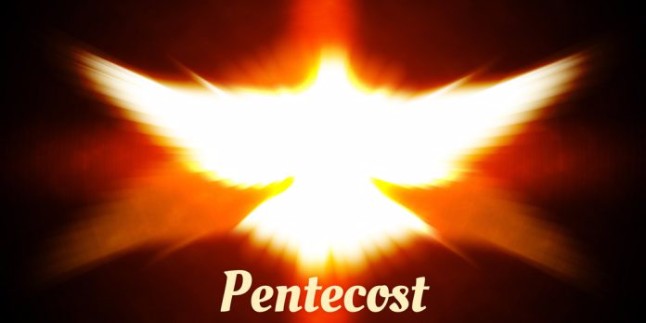 Read some of our Latest articles.
Read some of our Latest articles.
We hosted the area wide meeting of Spanish-speaking Church groups yesterday. It was such a blessing to worship together. Mike Mendez (the father, the one with the great head of hair) translated my opening remarks into Spanish, and then translated the sermon of our guest speaker, brother Carlos Hugues, into English. Otherwise the service was conducted in Spanish. This posed only slight difficulties for us English speakers. Despite the language barrier we worshipped together fervently, in Spirit and in Truth.
The songs we sang were set to familiar tunes, and there is so much Spanish in the air that even those of us who have had no Spanish language training can follow along. We all know that Salvador is savior, Dios is God, Corazon is heart, amor is love, Cristo is Christ, agua is water, and Senor is Lord. I could list 20 more words we English speakers identified because they are in common usage, or recognized from a shared background in Greek and Latin. We English speakers sang along with the Spirit and the Understanding.
The same familiarity of vocabulary made following the scripture readings just as easy. I wish that the prayers of brother Ismael, and brother Rigoberto had been translated, as well as brother Chavez’ remarks around the communion table. Their words were so heart-felt and reverent, that even without translation we were all led in adoration of our Father.
Brother Hugues’ lesson on Hebrews 2.1-4, encouraging us not to neglect our great salvation, was a powerful and challenging reminder of what is truly important.
For weeks we announced this meeting as a “Spanish Language” service, but it was truly a Pentecost service. On the day of Pentecost following the death-burial-resurrection-ascension of Jesus the Spirit was poured out upon the Apostles and they began to preach. The miracle of the day was that although 16 different ethnic groups were gathered in Jerusalem, and only 12 apostles to preach to them, everyone heard the gospel in their native language. Something like that happened Sunday evening.
It wasn’t that we all miraculously understood Spanish. There are three logical reasons why language didn’t pose much of a barrier. One reason is that most of us know more Spanish than we realize. Another reason is that we humans communicate in more ways than just with words. But there was something else at work – a common language we Spanish speakers and English speakers share when we share a Salvador. We share the language of the Gospel.
Now we have not received the spirit of the world, but the Spirit who is from God, that we might know the things freely given to us by God. Which things we also speak, not in words taught by human wisdom, but in those taught by the Spirit, explaining spiritual things to spiritual people. But the natural man does not accept the things of the Spirit of God; they are foolishness to him, he cannot comprehend them because they are spiritually valued. I Corinthians 2.12-14
Whether one speaks Spanish or English, Hope/Esperanza means something to the Christian it means to no one else. The miracle of Pentecost persists because we share the language of the Gospel.
Christianity has been chided recently for using a specialized vocabulary that is out of touch with most folks – especially young folks. It is true that we can throw theological jargon around like incantations, use those words as Shibboleths, or as a way to keep the uninitiated at arm’s length. We sometimes fetishize words of our own making - “trinity” for instance, which are not even in the Bible. But the vocabulary of the gospel – words like: sin, salvation, grace, redemption, peace, hope, and atonement –are necessary to the message itself. These words unite us across language barriers.
These gospel words will form no barrier to the one seeking God, as Paul tells us in the passage above. For the worldly person, the one with no interest in God at all, his own disinterest is the barrier – not gospel words.
This week I was reading through John 6 in Greek and noticed, for the first time, a curious vocabulary choice in verses 54-56. Jesus has just told the Jews in the Capernaum synagogue that they must “eat His flesh and drink His blood” in order to have eternal life. This provokes a “war of words” (verse 52) among the Jews, who are offended at such a statement. Jesus does not back down, but repeats His statement. In fact he more than repeats it, He intensifies it. He stops using the word “eat,” and from verse 54 on uses a word that means “to chomp, to crunch” – like crunching a piece of celery, or chomping ice. How would we react if translators were literal in these verses and have Jesus say, “He who chomps my flesh…shall have eternal life”? Of course Jesus and the Jews were almost certainly not speaking Greek in the synagogue, but were conversing in Aramaic or Hebrew. Still, John was there, and he (or more precisely, the Holy Spirit) choses to change the word from “eat” in verse 51 to “chomp” in verses 52-54. Why?
I have been awfully self-satisfied with my 20/20 hindsight, and the knowledge that Jesus is talking about the communion service at the end of John 6. He is. But even with my after-the-fact knowledge, I am still confused by some of Jesus’ words.
For instance, what does Jesus mean when He tells Nicodemus that those born of the Spirit are “Like the wind” (John 3.8)? I have been just as smug over the years in my understanding that in John 3 Jesus is talking about baptism. He is. But only recently have I admitted to myself that regarding John 3.8 I am just as confused as Nicodemus.
I have another question. In the creation account, how is it that vegetation appears before the Sun is created (Genesis 1.9-19)? God can surely keep vegetation alive if He can create it. I understand that. But creation happens in a logical order: energy, matter, water, arable land, vegetation, simpler animal life, more complex animal life, human life. The one thing that is glaringly out of order is that the Sun comes after vegetation is created. Why did God disrupt the logical order of things?
In the Bible, when folks demand an immediate answer from God, and get one, His response is generally disturbing (see Baruch in Jeremiah 45, and the book of Habakkuk). The exception is Job, whose demand that God explain Himself, is met with the answer “Who are you? I Am God” (Job 38-41). This answer is satisfying, and Job repents (42.1-6). It should satisfy us as well. None of our questions, however personal, pressing, or perplexing, deny that Yahweh is God – or that Yahweh is good.
This is where faith comes in – faith sees us beyond the questions we cannot puzzle out. Faith is the assurance of things hoped for, the evidence of things not seen (Hebrews 11.1). Faith does not make up for a paucity of evidence, but for the limitations of human perception and experience. Faith is for the hard questions. We believe God is, and that God is good. There’s overwhelming evidence of that. Therefore, we do not doubt when our experience, imagination, and intelligence are not sufficient to our questions.
After those “hard words” Jesus delivers in John 6.52-28, many disciples stop following Him altogether. This prompts Jesus to ask the apostles, “You don’t want to go away too, do you?” Peter replies for the 12, in fact he replies for every true disciple when he says:
Master, to whom shall we go? You have the words of eternal life. We have complete faith, and have come to know that You are the Holy One of God. (John 6.66-69).
Amen.
Years ago my nephew Drew gave me The Pop-Up Book of Phobias as a Christmas gift. Although it is just the kind of thing I enjoy, I don’t look at it much – it is SO SCARRY! The frightening pictures pop out at you, and nothing prepares you for the horrors leaping at your face. The first page covers dentophobia (fear of dentists), and when you turn the page a dental drill pierces your personal space. The same kind of thing happens on the ophidiophobia page (fear of snakes) with a king cobra. The most creative page is the acrophobia page (fear of heights). You open it and find yourself looking over the ledge of a high skyscraper. The most frightening to me, the one that always produces nightmares is the coulrophobia page (fear of clowns). The sinister clowns (are there any other kind?) on this page are so menacing they make the clown in Stephen King’s It look like a Teletubby.
I am afraid of snakes (a little), and clowns (a lot), and at 55 I find myself becoming wary of heights. I still brave the dentist two or three times a year, and laugh cavalierly when I sit in his chair – so I still have that going for me.
David’s great fear was atertheophobia – a fear of losing God’s presence (that is a real word – I just coined it). God’s presence was the sole source of his confidence from his youth on. As a boy, when he was unafraid to fight the giant, Goliath, he explains the source of his courage:
When a lion or bear came and took a lamb from the flock, I went after him and attacked him, and rescued the lamb from his mouth. When he rose up against me I seized him by his fur and struck him and killed him. Your servant has killed both the lion and the bear, and this uncircumcised Philistine will be like one of them….The LORD who delivered me from the paw of the lion and the paw of the bear will deliver me from the hand of the Philistine. I Samuel 17.34-37
As a boy alone in the open countryside, protecting his few sheep, and faced with aggressive predators, David understood he was not alone. At a very early age he understood the blessing of God’s presence. This inner-conviction, which was marrow-deep, is expressed in Psalm 23. In this hymn David is himself the lamb, and God is the ever-watchful shepherd.
David also knew, early on, the effects of the absence of God – he was an eyewitness to what happened when Saul was separated from God’s presence. The Spirit of the LORD departed from Saul, and an evil spirit from the LORD terrorized him (I Samuel 16.14). Because of David’s reputation as a musician he was brought in to sooth Saul. Whenever the evil spirit from God came David would take the harp and play it, and Saul would become refreshed and well, and the evil spirit would depart from him (I Samuel 16.23). The youthful David saw with his own eyes what happens to a man separated from the presence of God – it must have been frightening.
So when David was caught in the web of sin he created by taking Bathsheba, his great fear was that he would lose the presence of God, just as Saul had.
David’s prayer of repentance is recorded in Psalm 51. It was a public repentance, because it was sent to the “choir director”. In this prayer-song David did not plead to keep his throne, his life, his position, his wealth, or even his dignity. His asked for one thing – God’s continued presence.
Do not cast me away from your presence. Do not take your Holy Spirit away from me. Psalm 51.11
When we repent, when we pray, what are we most concerned about? Avoiding consequences? Saving face? Escaping pain? Or do we care most about being right with God when we stand in His presence? A dose of atertheophobia might be a healthy thing for us all.
- Barry Bryson
Atertheophobia
Years ago my nephew Drew gave me The Pop-Up Book of Phobias as a Christmas gift. Although it is just the kind of thing I enjoy, I don’t look at it much – it is SO SCARRY! The frightening pictures pop out at you, and nothing prepares you for the horrors leaping at your face. The first page covers dentophobia (fear of dentists), and when you turn the page a dental drill pierces your personal space. The same kind of thing happens on the ophidiophobia page (fear of snakes) with a king cobra. The most creative page is the acrophobia page (fear of heights). You open it and find yourself looking over the ledge of a high skyscraper. The most frightening to me, the one that always produces nightmares is the coulrophobia page (fear of clowns). The sinister clowns (are there any other kind?) on this page are so menacing they make the clown in Stephen King’s It look like a Teletubby.
I am afraid of snakes (a little), and clowns (a lot), and at 55 I find myself becoming wary of heights. I still brave the dentist two or three times a year, and laugh cavalierly when I sit in his chair – so I still have that going for me.
David’s great fear was atertheophobia – a fear of losing God’s presence (that is a real word – I just coined it). God’s presence was the sole source of his confidence from his youth on. As a boy, when he was unafraid to fight the giant, Goliath, he explains the source of his courage:
When a lion or bear came and took a lamb from the flock, I went after him and attacked him, and rescued the lamb from his mouth. When he rose up against me I seized him by his fur and struck him and killed him. Your servant has killed both the lion and the bear, and this uncircumcised Philistine will be like one of them….The LORD who delivered me from the paw of the lion and the paw of the bear will deliver me from the hand of the Philistine. I Samuel 17.34-37
As a boy alone in the open countryside, protecting his few sheep, and faced with aggressive predators, David understood he was not alone. At a very early age he understood the blessing of God’s presence. This inner-conviction, which was marrow-deep, is expressed in Psalm 23. In this hymn David is himself the lamb, and God is the ever-watchful shepherd.
David also knew, early on, the effects of the absence of God – he was an eyewitness to what happened when Saul was separated from God’s presence. The Spirit of the LORD departed from Saul, and an evil spirit from the LORD terrorized him (I Samuel 16.14). Because of David’s reputation as a musician he was brought in to sooth Saul. Whenever the evil spirit from God came David would take the harp and play it, and Saul would become refreshed and well, and the evil spirit would depart from him (I Samuel 16.23). The youthful David saw with his own eyes what happens to a man separated from the presence of God – it must have been frightening.
So when David was caught in the web of sin he created by taking Bathsheba, his great fear was that he would lose the presence of God, just as Saul had.
David’s prayer of repentance is recorded in Psalm 51. It was a public repentance, because it was sent to the “choir director”. In this prayer-song David did not plead to keep his throne, his life, his position, his wealth, or even his dignity. His asked for one thing – God’s continued presence.
Do not cast me away from your presence. Do not take your Holy Spirit away from me. Psalm 51.11
When we repent, when we pray, what are we most concerned about? Avoiding consequences? Saving face? Escaping pain? Or do we care most about being right with God when we stand in His presence? A dose of atertheophobia might be a healthy thing for us all.
- Barry Bryson
Truly, truly I say to you, when you were younger, you used to gird yourself, and walk wherever you wished. But when you grow old you will stretch out your hands, and someone else will gird you, and bring you where you do not wish to go. John 21.18
The day I realized I wasn’t young anymore was the day I caught myself kicking newspapers. We received two dailies at the time, the now-defunct Manassas Journal Messenger, and the Washington Post. One morning I realized I was kicking the two papers together so I only had to bend down once to pick them up. A little later I got into the habit of kicking them uphill so I wouldn’t have to bend over too far.
That was when I knew I wasn’t young anymore. Just last week I realized that I am old (some might say 55 is middle-aged – it is if you live to be 110). I was watching the Marx Brother’s classic, Duck Soup, and I caught myself thinking, “You know….that Margaret Dumont wouldn’t be half bad if she fixed her hair a little differently, and stopped strutting around like the Queen of Asgard.” When you start thinking Margaret Dumont was sort of cute back in 1933 you’re officially old (and in need of some new bifocals). Of course back in 1933 Margaret Dumont was only 45 – 10 years younger than I am now – but still.
I always thought of the passage above, from John’s gospel, in terms of incarceration. Jesus, in calling Peter a second time, makes clear what the cost of following him will be – it will mean the eventual loss of his freedom. Clearly Jesus is seeing the persecutions and arrests Peter will endure in the future. But there is a sense in which this prediction will come true for any of us who live long enough.
Anyone who has ever cared for an aging relative knows how easily, how quickly one can find oneself unable to “gird” oneself and holding out one’s hands so someone else can do the job. How many necessary destinations become places we don’t want to go?
The Bible is clear – the skin we’re in, the body we inhabit is just that – a habitation, not our selves. Paul calls it a “tent” in II Corinthians 5.1-10 – just a temporary dwelling for a pilgrim until he reaches home. My grandma used to like an old country song called “This Old House.” It has been recorded by everyone from Bette Midler to the Gaithers, but Stuart Hamblen released it first, back in 1953. In it he describes his body as a house that is falling apart, but he’s fine with that because he’s “goin’ to meet the saints.” It is a catchy, hopeful song….but it is wrong – we don’t have a house, only a tent.
Knowing this, as careful stewards of God’s gifts, we should take good care of our tents. But knowing this, our first priority is to “redeem the time” (Ephesians 5.16), “number our days” (Psalm 90.12), and “walk circumspectly” (Ephesians 5.15). We must “remember our Creator in the days of our youth,” and remember that the whole duty of a human being on earth is to “fear God and keep his commandments,” (Ecclesiastes 12.1,13).
As the Rich Man learned in Luke 16, we do not cease to be when we die, but we cease to be able to effect change – and thus we must never waste a moment, or an opportunity. Vigor must not be squandered – because like time, it is in limited supply.
I used to regularly cite a 2002 article in the Atlantic to my college classes. The article, “The New Christianity,” by Phillip Jenkins (October 2002, pp. 53-68), is a bit of a panic piece. Jenkins is worried that vigorous forms of evangelical Christianity will derail social progress around the globe. He claims: “The changes that Christian reformers are trying to inspire in North America and Europe run contrary to the dominant cultural movements in the rest of the Christian world.” He further asserts that “radical Protestant sects, either evangelical or Pentecostal, or Roman Catholic of an orthodox kind – are stalwartly traditional or even reactionary by the standards of economically advanced nations.” The threat was great, he believed, because Christianity was growing so fast at the time.
Fifteen years later the growth of Christianity world-wide has stagnated. In this country the number of citizens who identify as “Christian” has shrunk from nearly 90% to less than two thirds. Regular church attendance among Christians has taken a bigger hit. One might think that the editorial staff at the Atlantic would celebrate this loss of vigor, but they are actually commiserating over it.
In an article titled “Breaking Faith,” (April 2017, pp. 15-17), Peter Beinart regrets the loss of the ameliorating influence Christianity used to have on the tensions in our culture. He draws a direct line between the decline of Christianity (especially regular church-attendance) and the breakdown of polite discourse among us. He points out that regular church attenders in every group – republicans, democrats, tea-partiers, and the Black Lives Matter movement – are exponentially less likely to hold extreme positions, and more likely to be tolerant of other’s opinions. The people who identify as Christian who don’t attend church regularly are much more likely to engage in angry exchanges in person and on the internet. These unaffiliated “Christians” in every group – republicans, democrats, tea-partiers, and the Black Lives Matter movement – are much more likely to take extreme positions.
After spending three pages detailing the declining influence church-going Christians have on the culture, Beinart concludes with this paragraph:
“For years, political commentators dreamed that the culture war over morality that began in the 1960’s and 70’s would fade. It has. And the more secular, more ferociously national and racial culture war that has followed is worse.”
In Matthew 5.9 Jesus says, Blessed are the Peacemakers, for they shall be called the children of God. That word, “Peacemaker,” is one Jesus coined. Peace can be “kept” by force, by artifice, by intimidation, but it can only be “made” by Jesus. Jesus offers a quality of Peace unique to Him (John 14.27, 16.33). His disciples share in this peace, and share this peace. When there are fewer of us to share the peace of Jesus, and when fewer of us practice peace, everyone suffers.
We are supposed to be salt and light. We are supposed to make a visible difference (Matthew 5.13ff). We will not convince everyone (or even “most everyone”) to walk the straight and narrow (Matthew 7.13-14), but we can make the world better for everyone.
For where jealousy and selfish ambition exist, there is disorder and every evil thing. But the wisdom from above is first pure, peaceable, gentle, reasonable, full of mercy and good fruits, unwavering, without hypocrisy. And the seed whose fruit is righteousness is sown in peace by those who make peace. James 3.16-18
Everyone is blessed by the peacemakers.




